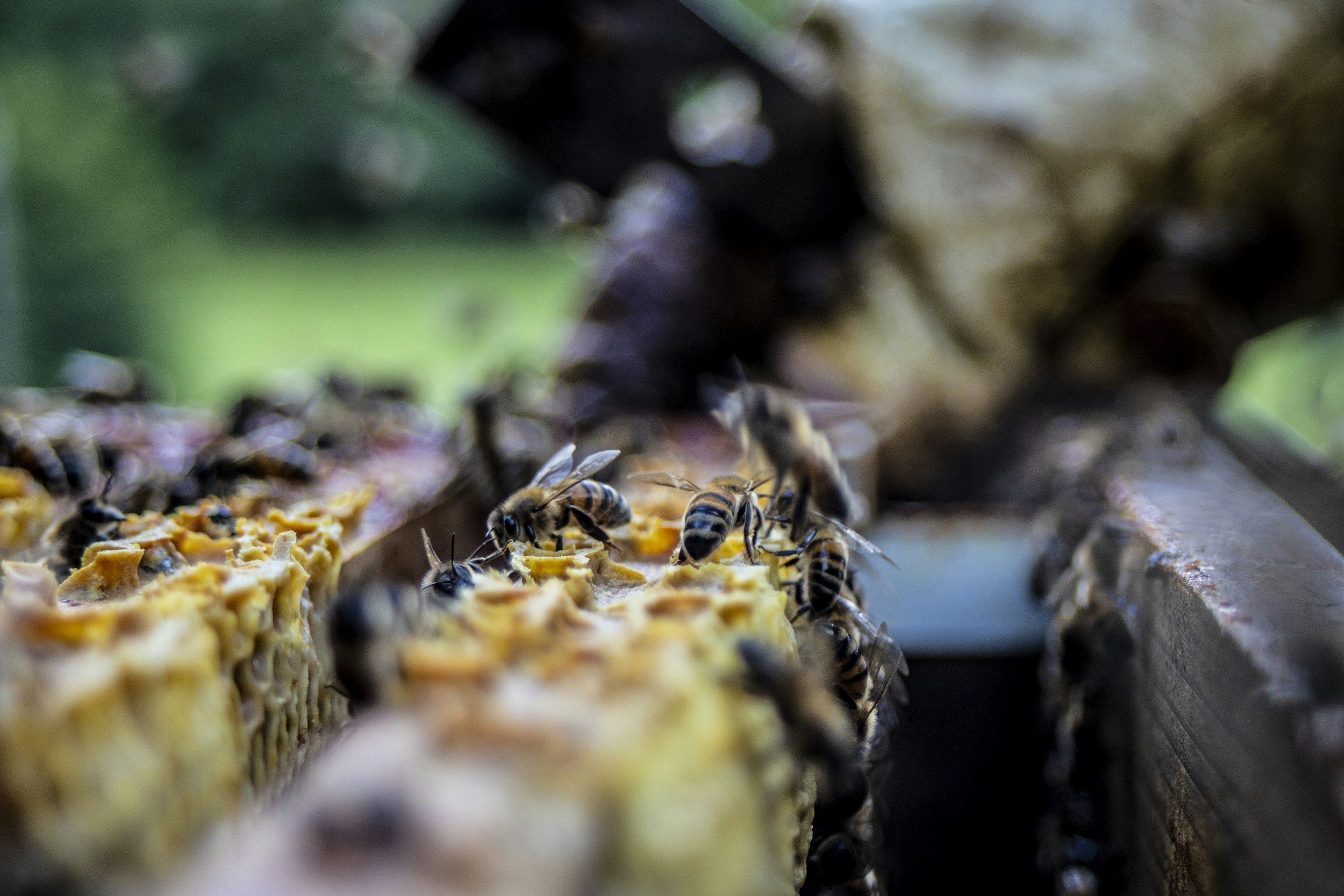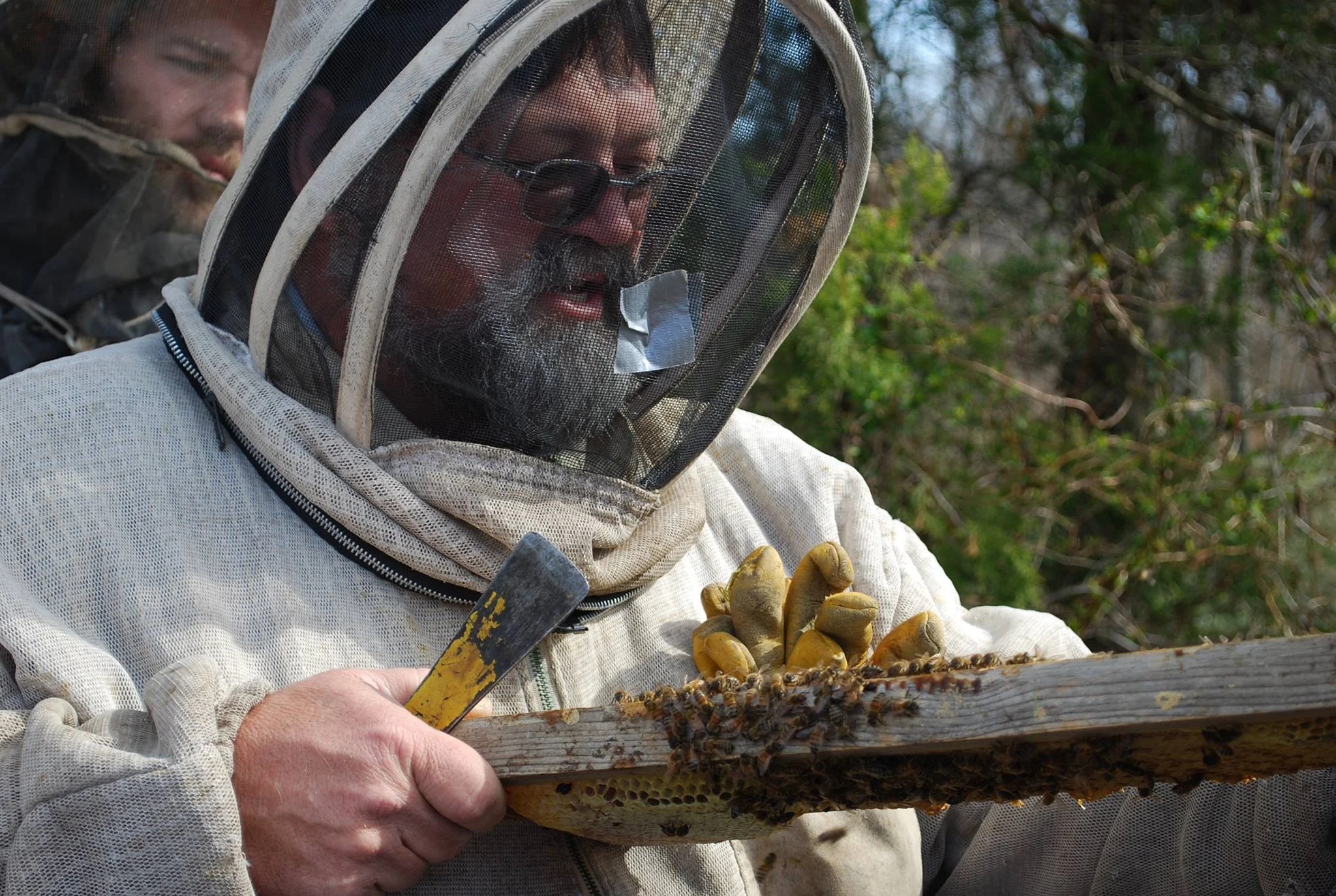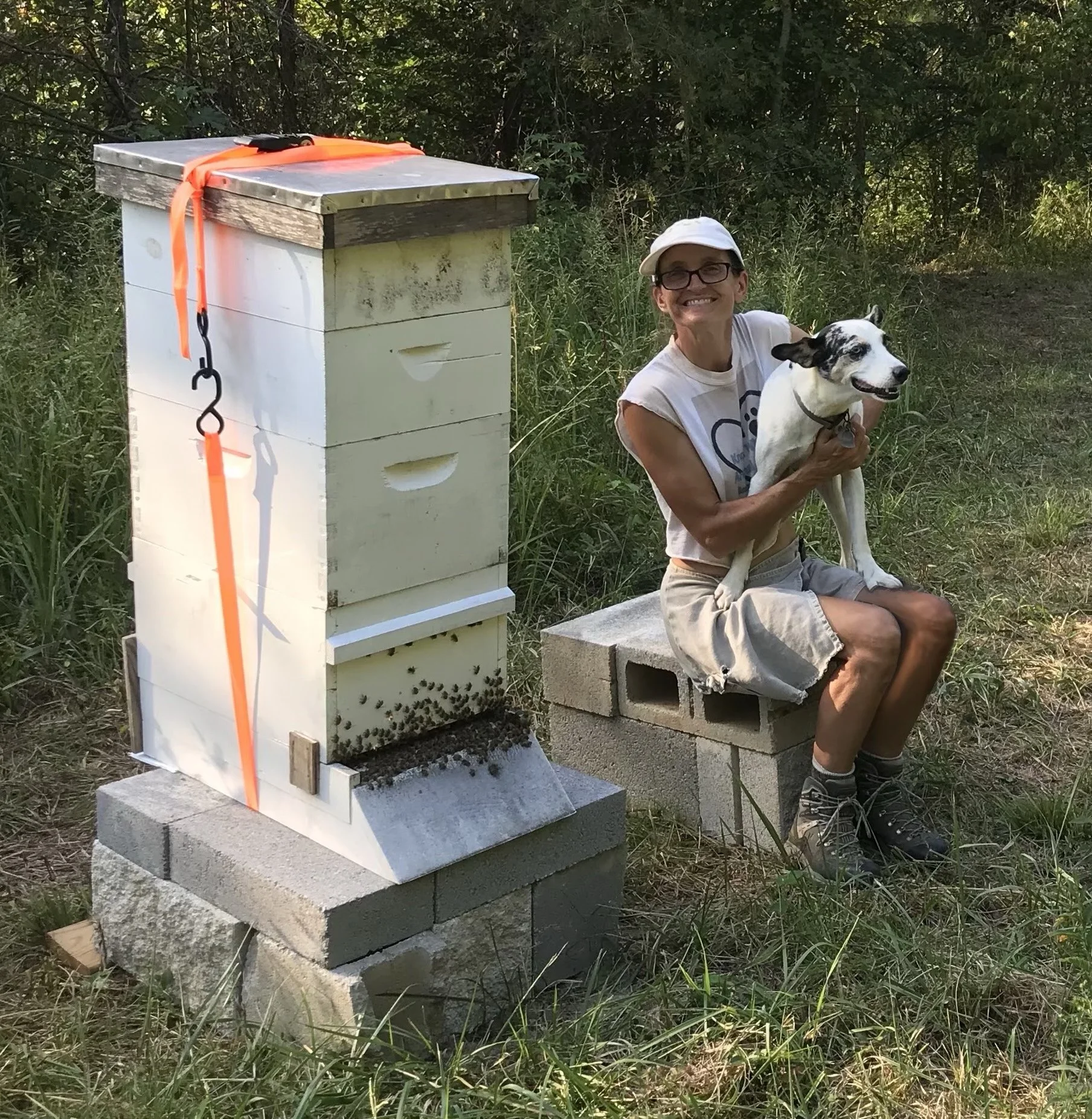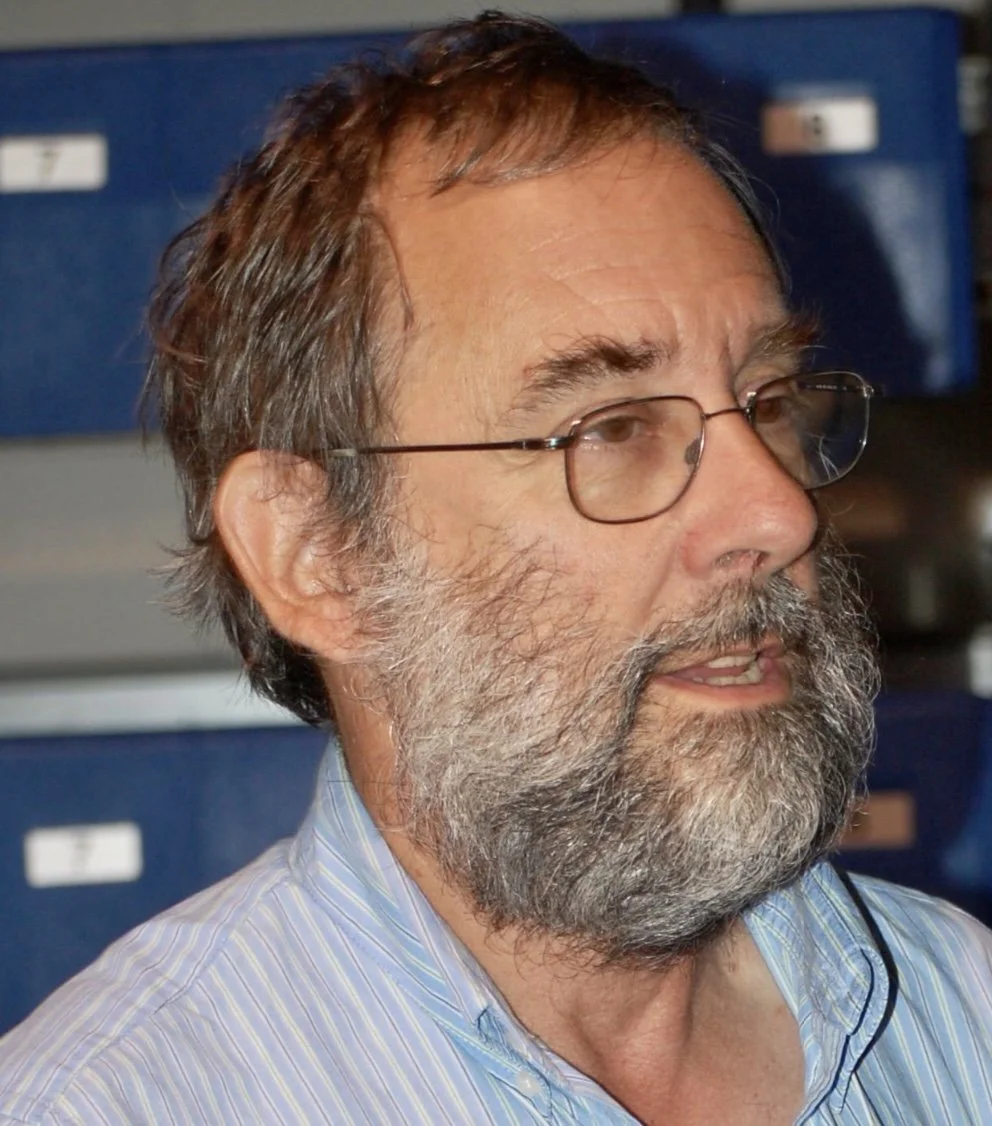
Speaker
BIOS

PLENARY
-
MASTER BEEKEEPER
Kent Williams is a Kentucky-based EAS Certified Master beekeeper who has been in beekeeping industry for 30+ years. In that time, Williams established the Kent Williams Bee School in conjunction with the Lake Barkley Beekeeper’s Association, as well as provided education to beekeepers all over the country.

SPEAKERS
-
Theresa Martin author of Dead Bees Don’t Make Honey: 10 Tips for Healthy Productive Bees
Theresa has achieved 99% colony survival and honey production that is twice the local average in her seven years as a beekeeper, with 20–25 colonies in Kentucky. She practices a beekeeping methodology that places bee health as the highest priority and optimal pathway to productivity. Following the model of how bees survive in the wild, employing integrated pest management, and providing high support yet low intervention, she demonstrates that healthy, alive bees are more productive than sick or dead bees. Theresa is a Cornell Master Beekeeper, 2024 Kentucky State Beekeeper of the Year, and Vice-President of the Kentucky State Beekeepers Association. She worked at Fidelity Investments and Procter & Gamble in information technology and operations management. Theresa can be reached at theresa@littlewolf.farm Her book is available on Amazon at https://www.amazon.com/Dead-Bees-Dont-Make-Honey/dp/B0CY9G9C89
-
DVM
MASTER BEEKEEPERLeonard attended the University of Kentucky and Auburn University College of Veterinary Medicine and is a small animal veterinarian in Louisville, where he owns and operates Davis Animal Clinic. He is USDA-Aphis accredited. He currently manages 45+ colonies practicing self-sustaining beekeeping. He grafts and raises his own queens. Leonard is an Eastern Apiculture Society (EAS) Certified Master Beekeeper and the EAS Kentucky Director. He was the president of the EAS 2021 Conference that was held in Shepherdsville just south of Louisville. He is currently the president of the Bullitt County Beekeepers Association, a member of the Kentuckiana Beekeepers Association, the Kentucky Queen Breeders Association, and the Kentucky State Beekeepers Association. Leonard has taught at several local association meetings, the EAS Conference, the Kentucky State Beekeepers meetings, and various other clubs and organizations.
-
Vice President
Thomas is an accomplished individual with a diverse educational background; he has always been passionate about learning and exploring new fields. His journey began at the University of Kentucky, where he earned a Bachelor's degree in Microbiology. This degree allowed him to delve into the fascinating world of microorganisms and their impact on our lives.
His thirst for knowledge did not stop there. He went on to earn a Bachelor's degree in Business Management from Northwood University, which gave him a solid foundation in the principles of business and entrepreneurship. he also earned a Bachelor's degree in Science from the University of Louisville, which broadened his understanding of the natural world and its complexities.
In addition to his Bachelor's degree, he also holds an Associate degree in Business Administration from McKendree University. This degree gave him practical skills and knowledge he applied throughout his career.
Outside of my academic pursuits, he has also pursued his passion for beekeeping. For the past four years, he has been a dedicated beekeeper, tending to his hives and learning about bees' important role in our ecosystem.
Overall, his diverse educational background and passion for learning have shaped him into a well-rounded individual with a deep appreciation for the natural world and a drive to positively impact his community.
-
MASTER BEEKEEPER
John Benham has been a full-time beekeeper for over 20 years, operating 40+ colonies in three apiaries and breeding quality local queens and bees from local survivor stock for over 17 years.
He shares his knowledge and love for the bees as a mentor, speaker, instructor, volunteer, and organizer at state, local, regional, and national associations, as well as various bee schools, libraries, garden clubs, and educational events in Kentucky, Tennessee, Ohio, Illinois, Kansas, Pennsylvania, and Indiana.
He is the owner/operator of Pure Barren River Honey, winning blue ribbons at the local and state level, and has an average production of 100+ pounds of honey per colony with his wild-caught survivor stock bees.

RESEARCHERS
-
PhD
Thomas C. Webster, Professor and Extension Specialist, Kentucky State University. He completed his graduate work in entomology at the University of California at Davis and did postdoctoral research on pesticide poisoning of bees pollinating alfalfa in the San Joaquin Valley. Also, he advised the beekeepers of Belize on pesticide poisoning and the impending Africanization of colonies there. In 1988, Webster accepted his current position in apiculture at Kentucky State University. His research now focuses on Nosema ceranae, a common pathogen of honey bees, improved understanding of the biology of this microbe, and development of appropriate and sustainable control measures for
beekeepers. -
PhD
Brock Harpur is an Associate Professor in the Entomology Department of Purdue. Brock arrived at Purdue after completing a National Science and Engineering Research Council Postdoctoral Fellow at the Donnelley Centre, the University of Toronto with Ben Blencowe. His work explores the evolution and genetics of honey bees. Brock completed his Ph.D. on population genomics of honey bees at York University with Amro Zayed as an Elia Research Scholar. He's been a beekeeper for over 15 years.m description
-
PHD CANDIDATE

STATE and LOCAL RESOURCES
-
Dr. Amanda Skidmore is the State Apiarist from Kentucky Department of Agriculture. After graduating with her PhD in Entomology from University of Kentucky, she spent time researching pollinators and beneficial insects in Indiana and working as an extension professor New Mexico. Her background is in integrated pest and pollinator management, where she has focused on developing common sense practice for homeowners and agriculture producers that mange insect pests and protect pollinators while reducing pesticide use. In her role as State Apiarist her focus is on keeping Kentucky honey bees healthy and working to promote beekeeping and support beekeepers across the state. She covers all 120 of Kentucky’s counties and works with beekeepers to perform certified health inspections, participates in collecting data for the National Honey Bee Health Survey, and speaks at local beekeeping association meetings.








